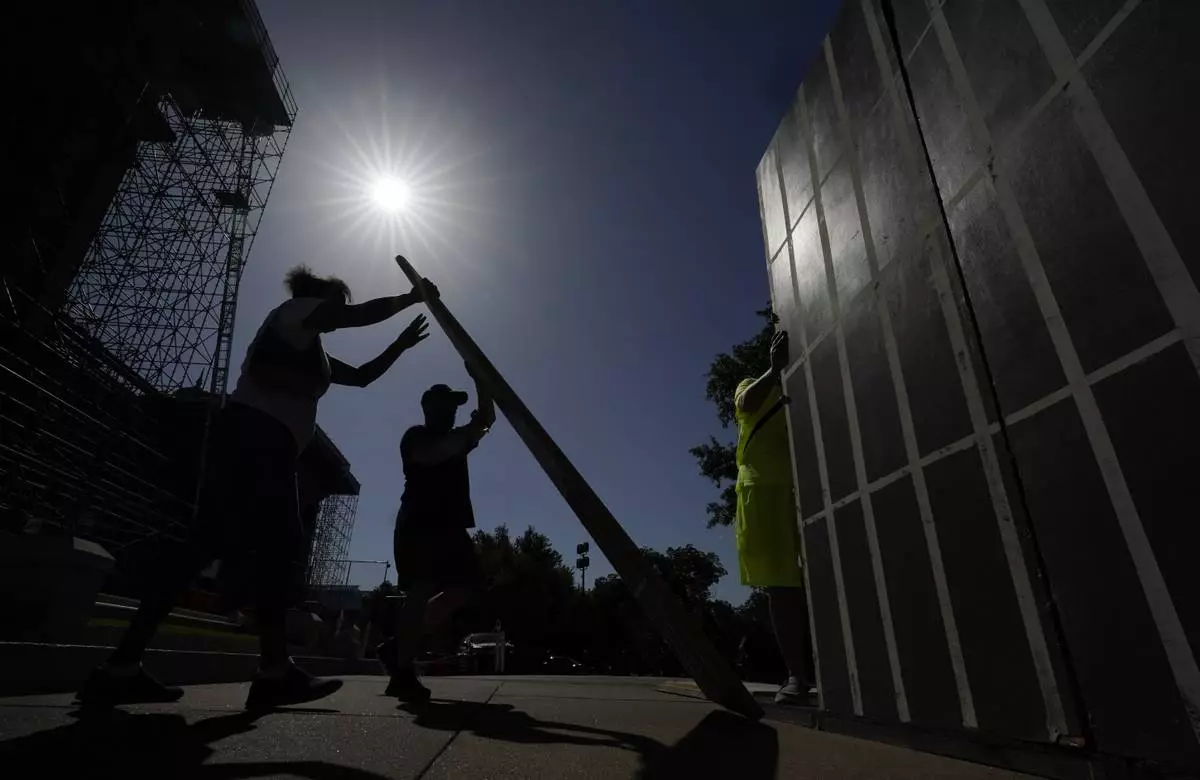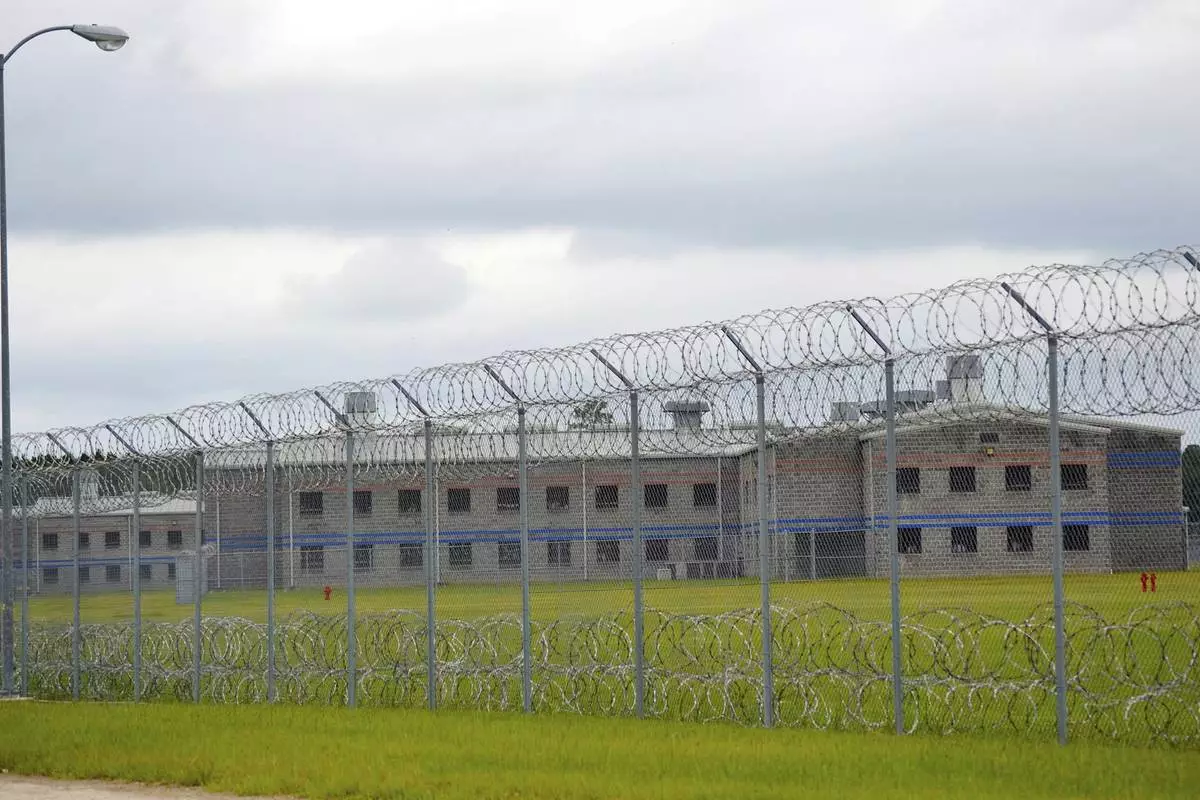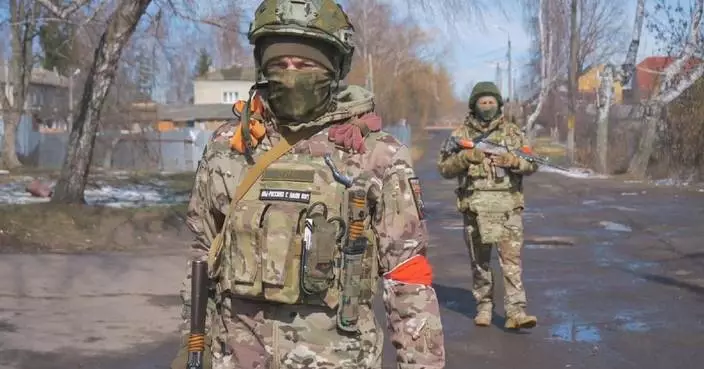NEW YORK (AP) — The youngest son of former New York Yankees outfielder Brett Gardner and his wife, Jessica, has died after falling ill during a family vacation. Miller Gardner was 14.
Miller Gardner died in his sleep Friday morning, according to a statement from the couple that was released by the Yankees on Sunday. The Gardners said they “have so many questions and so few answers at this point.”
“Miller was a beloved son and brother and we cannot yet comprehend our life without his infectious smile," Jessica and Brett Gardner said in the release. “He loved football, baseball, golf, hunting, fishing, his family and his friends. He lived life to the fullest every single day.”
The Yankees said the organization was “filled with grief.”
“Words feel insignificant and insufficient in trying to describe such an unimaginable loss,” the team said in its statement. "It wasn’t just Brett who literally grew up in this organization for more than 17 years — so did his wife, Jessica, and their two boys, Hunter and Miller.”
Brett Gardner, 41, was drafted by the Yankees in 2005 and spent his entire big league career with the organization. The speedy outfielder batted .256 with 139 homers, 578 RBIs, 274 steals and 73 triples in 14 seasons from 2008-2021.
AP MLB: https://apnews.com/hub/mlb

FILE - New York Yankees' Brett Gardner walks off the field after being defeated by the Tampa Bay Rays in a baseball game on Saturday, Oct. 2, 2021, in New York. (AP Photo/Adam Hunger, File)
AUSTIN, Texas (AP) — A federal judge on Wednesday found the extreme heat in Texas prisons is “plainly unconstitutional,” but declined to order the state to immediately start installing air conditioning, which could cost billions.
The ruling affirmed claims brought by advocates of people incarcerated in Texas, where summer heat routinely soars above 100 degrees Fahrenheit (38 degrees Celsius) for weeks. But they will have to continue pressing their lawsuit later in a trial.
The lawsuit was initially filed in 2023 by Bernie Tiede, the former mortician serving a life sentence whose murder case inspired the movie “Bernie.” Several prisoners’ rights groups then asked to join his legal fight and expand it to encompass all Texas prisoners.
The lawsuit argues the hot conditions in the state facilities amount to cruel and unusual punishment, and seeks to force the state to install air conditioning.
Texas has more than than 130,000 people serving time in prisons, more than any state in the U.S. Only about a third of roughly 100 prison units are fully air conditioned and the rest have either partial or no electrical cooling.
“This case concerns the plainly unconstitutional treatment of some of the most vulnerable, marginalized members of our society,” U.S. District Judge Robert Pittman wrote in his ruling on a request for a temporary injunction against the state. “The Court is of the view that excessive heat is likely serving as a form of unconstitutional punishment.”
But the judge said that ordering the state to spend “hundreds of millions, if not billions, of dollars to install permanent air conditioning in every (prison),” could not be accomplished before such an order would expire.
Pittman said he expects the case will proceed to trial, where advocates for prisoners can continue to argue their case.
He also issued a warning to the state that they will likely win at trial that the state could face an order to install air conditioning.
The judge also noted that the state Legislature, which is in session through May and writes the two-year state budget, is also considering bills that would require air conditioning to be installed in prisons.
But the Republican-majority Legislature has been hearing complaints about extreme heat in prisons for years and has not addressed the issue. In 2018, the state was ordered to install air conditioning at a unit for older prisoners and those that are medically vulnerable.
A lawyer for the plaintiffs and officials at the Texas Department of Criminal Justice did not immediately respond to emails seeking comment.
Texas is not alone in facing lawsuits over dangerously hot prisons. Cases also have been filed in Louisiana and New Mexico. One filed in July in Georgia alleged a man died in July 2023 after he was left in an outdoor cell for hours without water, shade or ice.
A November 2022 study by researchers at Brown, Boston and Harvard universities found that 13% — or 271 — of the deaths in Texas prisons without universal AC between 2001 and 2019 may be attributed to extreme heat. Prisoner advocates say those numbers are only likely to increase as the state faces more extreme weather and heat due to climate change.
In a weeklong hearing that sought the order for air conditioning while the lawsuit proceeds, people who were formerly incarcerated testified about their experiences in hot prison buildings where they said temperatures reach above 120 degrees Fahrenheit (48.9 Celsius).
They testified some inmates would splash toilet water on themselves to cool off, fake suicide attempts to be moved to cooler medical areas, or even deliberately set fires so that guards would be forced to hose down cells.
Texas Department of Criminal Justice Director Bryan Collier acknowledged that heat was a factor in three deaths from multiple causes in 2023, and that prison staff and inmates sometimes fall ill from high temperatures.
But the state disputed the hundreds of deaths in recent years alleged by the prisoner advocates, and argues Texas has implemented effective heat mitigation measures, such as providing fans, towels and access to cooler “respite” areas.
Collier also insisted he would like to have air conditioning installed across the prison system, but that state lawmakers have never agreed to spend enough money to do that.

FILE - Advocates for cooling Texas prisons construct a makeshift cell before a rally on the steps of the Texas Capitol, Tuesday, July 18, 2023, in Austin, Texas. The group is called for an emergency special session to address the deadly heat effecting inmates. (AP Photo/Eric Gay, File)

FILE - The perimeter of the Diboll Correctional Facility is seen on July 19, 2014, in Diboll, Texas. (Rhonda Oaks/The Daily News via AP, File)




















































